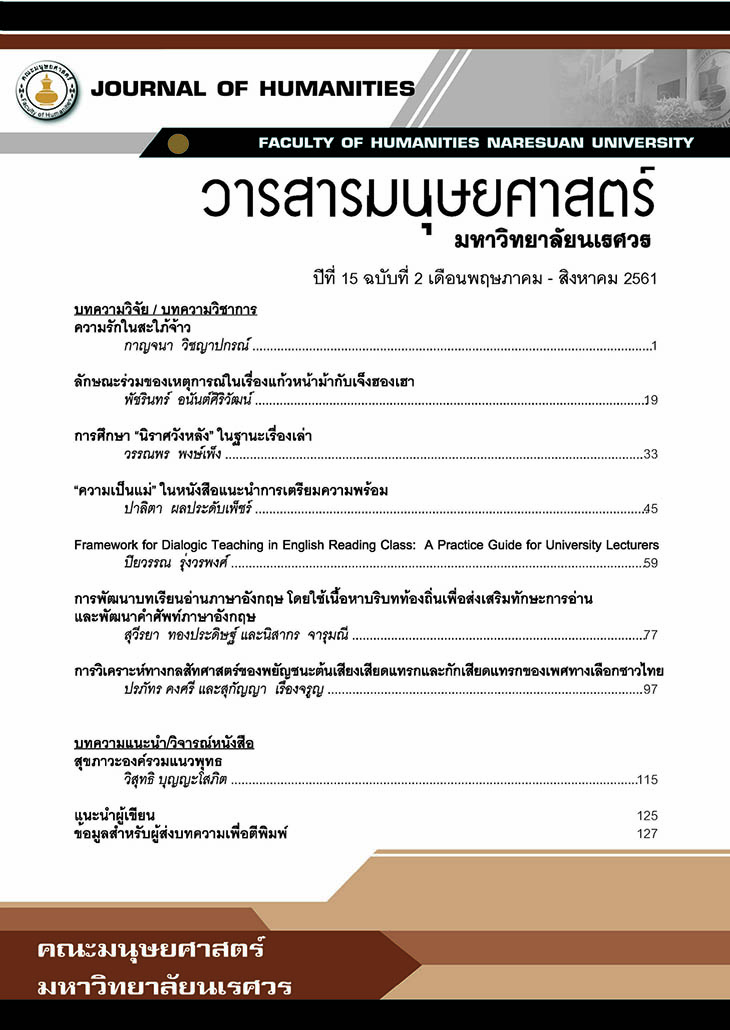Framework for Dialogic Teaching in English Reading Class: A Practice Guide for University Lecturers
Main Article Content
Abstract
This research was undertaken in the context of English reading class in Thailand universities. The research aimed to (1) identify essential elements of dialogic teaching in English reading class, (2) develop the framework for promoting dialogic teaching, and (3) evaluate the framework. Data were collected in two stages: framework developmental stage and framework evaluation stage. In the developmental stage, data were collected from eighteen lecturers of English reading. The instruments included classroom observation survey, semi-structured, interviews and non-participant observation. Data obtained were analyzed and crafted as a framework. In the evaluation stage, the framework was implemented in the researcher’s reading class, which had ninety-two students. Data were drawn from students’ grade reports and students’ evaluation of the courses. The results showed that dialogic teaching in a reading class is multi-faceted. The framework proposed in the study divides reading lessons into four stages: pre-, while-, post- and beyond- stages. Each stage has different aims and involves a wide range of activities. The framework enables the lecturer to manage dialogic teaching in a more systematic way, which results in better learning outcomes and higher students’ satisfaction of the course.
Article Details
How to Cite
รุ่งวรพงศ์ ป. (2019). Framework for Dialogic Teaching in English Reading Class: A Practice Guide for University Lecturers. Journal of Humanities Naresuan University, 15(2), 59–76. retrieved from https://so03.tci-thaijo.org/index.php/jhnu/article/view/169370
Section
Research Article / Academic Article
ข้อความรู้ใดๆ ตลอดจนข้อคิดเห็นใดๆ เป็นของผู้เขียนแต่ละท่านโดยเฉพาะ คณะมนุษยศาสตร์ มหาวิทยาลัยนเรศวร และกองบรรณาธิการวารสารมนุษยศาสตร์ฯ ไม่จำเป็นต้องเห็นพ้องด้วย


